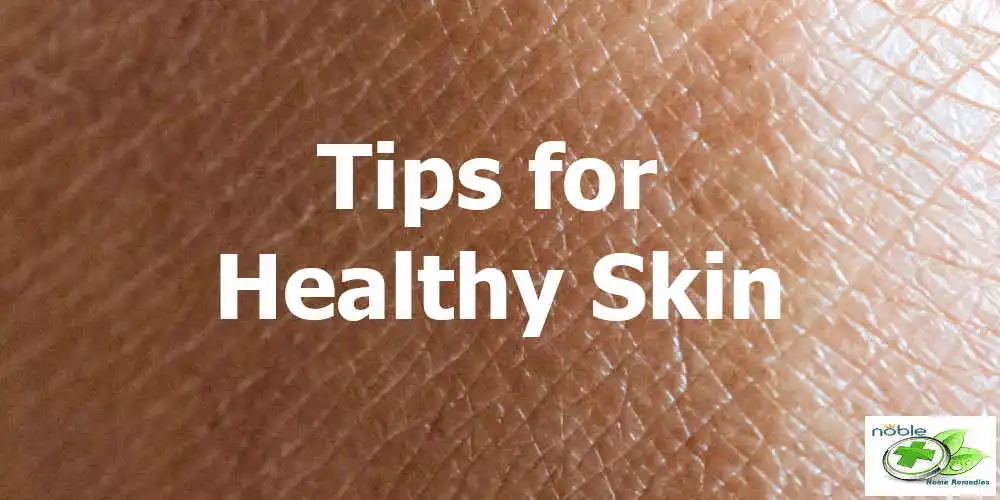Have you ever felt like nails were digging into your heels with every step? Or that you were walking barefoot on hot coals whenever you tried to get around? Foot pain can make even the simplest activities feel unbearable. Whether it’s caused by overuse injuries, arthritis, plantar fasciitis or something else entirely, ongoing foot pain takes a major toll on your mobility and quality of life.
It’s estimated that about 25% of adults deal with persistent foot pain each year. When every step brings discomfort or stabbing sensations, it prevents you from being active, enjoying hobbies, and sometimes even just getting through your day. The impact foot pain can have on both physical and mental health is huge. Finding an effective and affordable solution is critical.
Luckily, there are natural ways to relieve aching feet without breaking the bank on costly medications or devices. It is none other than the Epsom salt for foot pain. Epsom salt, in particular, has been used for centuries to reduce inflammation, draw out toxins, and soothe muscle and joint pain. When used in foot soaks, the magnesium in Epsom salt acts as both a muscle relaxant and anti-inflammatory. These are two huge benefits for foot pain relief.
Keep reading to learn how Epsom salt for foot pain can help you reclaim your active lifestyle with peaceful, pain-free feet.
Table of Contents
Understanding Foot Pain

Foot pain affects millions of adults each year, ranging from mild to debilitating. Common causes include:
- Plantar fasciitis
- Arthritis
- Nerve damage
- Overuse

Plantar fasciitis is one of the most common causes of foot pain. It involves inflammation of the plantar fascia, which is the band of fibrous tissue that runs along the bottom of your foot and connects your heel bone to your toes. With plantar fasciitis, the fascia becomes irritated and inflamed, usually where it attaches to the heel bone. This results in stabbing heel pain that is often most noticeable with the first steps in the morning or after long periods of rest. The pain typically decreases once you start moving, only to return after long periods on your feet.
Arthritis is another major contributor to foot pain. Osteoarthritis, rheumatoid arthritis, and gout can all affect the joints in the feet, causing swelling, stiffness, and pain. The cartilage that cushions the joints breaks down over time, resulting in bone rubbing on bone. This not only causes ongoing aches and soreness but also limits flexibility and range of motion. Arthritic feet often feel worse in the mornings or after activity.
Nerve damage, or neuropathy, frequently manifests as burning, tingling, or numbness in the feet. Diabetes is one of the primary causes of nerve damage in the feet. Poor circulation and high blood sugar levels damage the nerves over time, especially those farthest from the heart like those in the feet and hands. Nerve pain ranges from mild tingling to painful, “electrical” sensations.
Lastly, plain old overuse can provoke foot pain. Constant repetitive stress and overexertion take their toll. This type of mechanical foot pain is common in runners and athletes, as well as those on their feet all day for work. It initially comes and goes with activity but can progress to chronic pain involving inflammation, muscle tears, and joint damage. The pain typically centers on the bottom or outer edges of the foot.
No matter the cause, ongoing foot pain takes a real toll on your quality of life. It can prevent you from being active, enjoying hobbies, and sometimes even just getting through your day. Finding an effective solution is critical.
What is Epsom Salt?
Epsom salt is a crystallized mineral compound comprised of magnesium, sulfate, and oxygen. It dissolves easily in water and contains beneficial minerals that are readily absorbed through the skin.
For centuries, Epsom salt has been used to relieve muscle soreness and inflammation. Its high magnesium content promotes relaxation while the sulfates reduce swelling. Epsom salt is an affordable and accessible natural remedy with a long history of therapeutic use.
Epsom Salt for Foot Pain Relief

Soaking your feet in warm Epsom salt water allows the magnesium and sulfates to be quickly absorbed into the skin. This provides several benefits that ease foot pain:
- Reduces inflammation and swelling around joints.
- Relaxes muscles and eases muscle cramps and spasms.
- Temporarily increases blood flow to the feet.
- Soothes nerve pain related to conditions like neuropathy.
Research supports the pain-relieving effects of Epsom salt. One study on patients with foot pain related to type 2 diabetes found that soaking the feet for 30 minutes significantly decreased pain, allowing them to walk more comfortably.
Step-by-Step Guide to Using Epsom Salt for Foot Pain
Give your feet some sweet relief by soaking them in a warm Epsom salt bath:
- Fill a basin with warm water. Around 92-100°F is optimal. Hot water can cause burns.
- Add 1-2 cups of Epsom salt and stir until fully dissolved. The more salt used, the stronger the solution.
- Soak feet for 15-20 minutes to allow the key minerals to be absorbed.
- Dry feet thoroughly afterward, especially between the toes.
- Apply a foot cream or oil to keep your feet hydrated.
- Repeat daily as needed until the pain subsides.
Epsom Salt Foot Soak Recipes
Customize your foot soak by adding essential oils or creating an exfoliating foot scrub.
Basic Soak: 1 to 2 cups Epsom salt and warm water
Soak with Essential Oils: 1 cup Epsom salt, warm water, and 5 drops peppermint, eucalyptus, or lavender oil
Foot Scrub: 1⁄2 cup Epsom salt, Warm water, 2 tbsp olive oil, and 5 drops of lemon essential oil
Disclaimer: This post is reader-supported. The below is the affiliate link. I may earn a small commission at no cost to you.
Safety and Precautions with Epsom Salt
Epsom salt foot soaks are generally safe when used appropriately. However, be sure to:
- Avoid use if you have any open cuts, wounds, or skin infections on the feet.
- Diabetics should use caution to avoid very hot water.
- Discontinue use if skin becomes cracked, dry, or irritated.
- Talk to your doctor before use if you have cardiovascular issues.
See a podiatrist if your foot pain does not improve within 1-2 weeks of Epsom salt soaks or worsens over time. Diabetics should seek medical care immediately if they notice any skin changes or ulcerations on the feet.
Other Tips for Treating Foot Pain

While Epsom salt can alleviate symptoms, you may need to combine it with other methods to fully resolve foot pain issues. Additional tips include:
- Stretching and foot exercises to improve flexibility.
- Using orthotics or supportive shoes.
- Massaging feet with eucalyptus oil.
- Alternating heat and ice therapy.
Other Healthy Uses of Epsom Salt
- Reduce Stress and Improve Mood: Soaking in an Epsom salt bath promotes relaxation and eases stress by boosting magnesium levels. Magnesium plays a key role in mood regulation and anxiety reduction. Many report feeling less stressed and more tranquil after bathing in the mineral-rich salts.
- Relief from Muscle Soreness and Cramps: The high levels of magnesium in Epsom salt offer therapeutic effects for muscle pain and cramping. It works by relaxing muscles, reducing inflammation, and improving mineral absorption. Soaking sore muscles in an Epsom salt bath can bring significant relief.
- Reduce Inflammation: Magnesium sulfate, the compound that gives Epsom salt its name, has been shown to reduce inflammatory markers. This makes it beneficial for inflammatory conditions. For localized inflammation, soaking the affected area in an Epsom salt bath can aid healing.
- Promote Restful Sleep: The calming and stress-reducing qualities of Epsom salt make it easier to fall asleep and stay asleep. Many find soaking before bed conducive to a satisfying night’s rest. This in turn enables better health and healing.
- Overcome Magnesium Deficiencies: With its high magnesium content, Epsom salt is an excellent way to increase magnesium levels. Since magnesium deficiency is common, adding Epsom salt soaks provides needed magnesium absorption to prevent symptoms like muscle cramps, fatigue, and anxiety.
- Healing Sunburns: Sunburns benefit greatly from Epsom salt baths. The magnesium sulfate compound helps take away inflammation, discomfort, and skin irritation caused by too much sun exposure. It supports healing by lowering swelling.
- Exfoliant for Skin: As an add-on to your regular skincare routine, Epsom salt provides exfoliation to reveal fresh new skin. The salt’s coarse texture sloughs off dull skin cells and unclogs pores as it circulates in bath water.
- Healing Boils: The antibacterial and anti-inflammatory actions of Epsom salt may help bring boils to a head. By softening the skin tissue and allowing drainage, it quickens healing time. The minerals get absorbed to fight infection too.
- Relief from Hemorrhoids: The soothing, anti-inflammatory relief Epsom salt provides lends itself useful for inflamed hemorrhoids. It can decrease swelling, discomfort, and bleeding when added to a sitz bath. Many report significant relief from soaking in this mineral-rich solution.
- Relief from UTI: The minerals may prevent bacterial growth when used both internally and in bath water. When feeling UTI symptoms coming on, adding Epsom salt to your bath and drinking some magnesium sulfate water could potentially ward off UTI infection.
Takeaway
Living with constant foot pain doesn’t have to be your new normal. Soaking your feet in warm Epsom salt water can help provide natural relief by reducing inflammation, relaxing muscles, and increasing blood flow. With its excellent safety profile and convenience, Epsom salt is an affordable remedy worth trying before expensive medications or treatments.
While Epsom salt won’t cure underlying conditions, it can temporarily alleviate your discomfort so you can go about your day with less ache in every step. Your feet work hard enough as it is to give them the soothing comfort they deserve and make each step pain-free with an Epsom salt foot bath.
With anti-inflammatory and muscle-relaxing properties, Epsom salt for foot pain lets you reclaim your mobility and actively participate in the activities you love.
4 Sources:
Noble Home Remedies relies on peer-reviewed studies, academic research institutions, and medical associations for accuracy and reliability while avoiding tertiary references. Our editorial policy provides more information about how we ensure our content is accurate and up-to-date.
- Relieve foot pain naturally: How to use Epsom salt for foot pain
https://www.helpmyfootpain.com/how-to-use-epsom-salt-for-foot-pain/ - Epsom Salt Foot Soak
https://www.healthline.com/health/epsom-salt-foot-soak - Using Epsom Salt for Feet and Toe Problems
https://www.verywellhealth.com/epsom-salt-for-feet-5218147 - Foot pain
https://www.mayoclinic.org/symptoms/foot-pain/basics/definition/sym-20050792 - Plantar fasciitis
https://www.mayoclinic.org/diseases-conditions/plantar-fasciitis/symptoms-causes/syc-20354846






